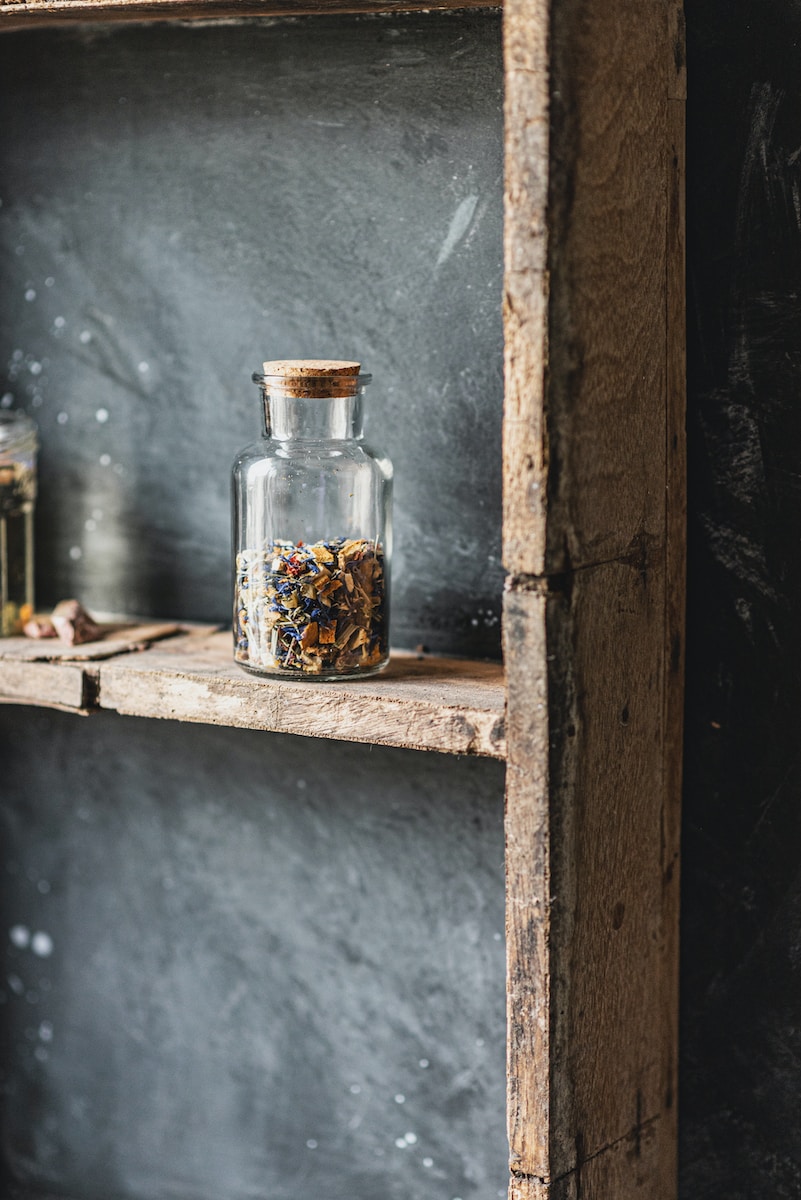
16 Immune Boosting Tips: Stay Healthy This Fall
Some Posts on Our Site May Contain Affiliate Links
Immune Boosting Tips: 15 Things You Can Do to Stay Healthy All Year Long, but Especially as Fall and Winter Approach
In the midst of our chaotic, germy world, our bodies feel like they’re in a never-ending battle with stress, pollution, and an army of sneaky pathogens.
As the fall and winter chill start to creep in, think of your immune system as your trusty sidekick. It’s like that friend who always has your back, especially when things get crazy.
So, while everyone else might be bundled up in scarves and mittens, your immune system is your real winter warrior, fighting off those pesky colds and flus. Keep it strong, and let’s keep our immune system at the top of it’s game!

General Immune Boosting Tips:
1. Eat a Balanced Diet: Consume a variety of fruits, vegetables, whole grains, and lean proteins. Include foods rich in antioxidants, such as berries, leafy greens, and turmeric.
2. Stay Hydrated: Drink plenty of water and immune boosting herbal teas to keep your body well-hydrated.
3. Get Adequate Sleep: Aim for 7-9 hours of quality sleep each night to support your immune system.
4. Exercise Regularly: Engage in moderate physical activity to improve circulation and overall health.
Regular exercise is known to have a positive impact on immune function, and scientific research supports several mechanisms through which exercise can boost the immune system. Here’s what the science says about how regular exercise improves immune function:
- Enhanced Immune Surveillance: Exercise increases the circulation of immune cells, such as white blood cells and natural killer cells, in the bloodstream. This allows these cells to detect and respond more effectively to pathogens and infected cells throughout the body.
- Improved Antibody Response: Exercise can enhance the production of antibodies and immunoglobulins, which are essential components of the adaptive immune system. This can improve the body’s ability to recognize and neutralize specific pathogens.
- Reduction in Chronic Inflammation: Regular exercise can help reduce chronic low-grade inflammation in the body. Chronic inflammation can impair immune function over time, and exercise’s anti-inflammatory effects can mitigate this.
- Enhanced T-cell Function: T-cells are crucial for adaptive immunity, and exercise has been shown to increase their activity and responsiveness. This can improve the body’s ability to fight infections.
- Improved Gut Microbiota: Exercise may positively influence the composition of gut microbiota. A healthy gut microbiome is associated with better immune function and reduced susceptibility to infections.
- Stress Reduction: Exercise can reduce stress and promote better mental health. High stress levels can weaken the immune system, so stress reduction through exercise indirectly supports immune function.
- Better Overall Health: Regular exercise is associated with a lower risk of chronic conditions such as obesity, heart disease, and type 2 diabetes. These conditions can compromise immune function, so maintaining good overall health through exercise can help protect the immune system.
It’s important to note that while regular moderate-intensity exercise can enhance immune function, excessive or intense exercise without adequate recovery can temporarily suppress the immune system. This is why balance is key; moderate, consistent exercise is generally recommended for optimal immune support.
The exact amount of exercise needed to boost immune function can vary among individuals, but guidelines often recommend at least 150 minutes of moderate-intensity aerobic exercise per week, along with strength training exercises on two or more days per week.
5. Manage Stress: Practice stress-reduction techniques like meditation, mindfulness, and deep breathing exercises.
6. Hand Hygiene: Wash your hands frequently with soap and water to prevent the spread of germs.
7. Stay Active: Keep yourself physically active to maintain a healthy body and mind.
8. Ayurvedic Herbs: Consider incorporating immune boosting Ayurvedic herbs such as Ashwagandha, Tulsi (Holy Basil), and Amalaki (Indian Gooseberry) into your diet, as they are known for their immune-enhancing properties.
Ashwagandha (Withania somnifera):
- Adaptogenic Properties: Balance physiological processes to help the body adapt to stress.
- Cortisol Regulation: Reduces cortisol production, mitigating the effects of chronic stress.
- Anxiety Reduction: May alleviate symptoms of anxiety and improve mood.
Tulsi (Holy Basil) (Ocimum sanctum):
- Adaptogenic and Antioxidant Properties: combat stress effects, and contain antioxidants.
- Cognitive Benefits: Calms the mind, enhances cognitive function, and reduces mental fatigue.
- Immune Support: Boosts the immune system’s response to stress.
Amalaki (Indian Gooseberry) (Emblica officinalis):
- Rich in Vitamin C: A potent source of antioxidants, particularly vitamin C.
- Enhanced Immunity: Supports the immune system to cope with stress-related challenges.
- Adaptogenic Effects: Help the body adapt to stress more effectively.
9. Oil Pulling: Try oil pulling with coconut or sesame oil to improve oral health, which can indirectly support your immune system.
10. Ayurvedic Diet: Embrace immune boosting Ayurvedic dietary principles, including eating warm, cooked meals, favoring seasonal foods, and avoiding excessive cold, raw, or processed foods.
11. Probiotics: Consume immune boosting probiotic-rich foods like yogurt, kefir, and fermented vegetables to support your gut health, which plays a significant role in immunity.
12. Herbal Teas: Enjoy immune boosting herbal teas like echinacea, elderberry, ginger, and astragalus.
Echinacea Tea:
- Stimulates immune response by increasing white blood cell production.
- Possesses anti-inflammatory properties.
- Contains antioxidants to protect cells from damage.
Elderberry Tea:
- Rich in antioxidants, especially anthocyanins.
- Potential antiviral properties may reduce cold and flu symptoms.
- Supports immune function by combating oxidative stress.
Ginger Tea:
- Strong anti-inflammatory properties.
- Contains antioxidants for immune support.
- Improves digestion, indirectly benefiting the immune system.
Astragalus Tea:
- Functions as an adaptogen to help the body adapt to stressors.
- May strengthen the immune system and enhance resistance to infections.
- Has anti-inflammatory properties to support immune health.
13. Essential Oils: Use immune boosting essential oils like eucalyptus, tea tree, and lavender in aromatherapy or diluted for topical use to promote respiratory health and reduce stress.
14. Acupuncture and Acupressure: Explore these traditional Chinese medicine practices to balance your body’s energy and support overall well-being.
15. Hydrotherapy: Try immune boosting contrast hydrotherapy, alternating hot and cold water applications, to stimulate blood circulation and boost immune function.
How Hydrotherapy May Improve Immunity:
- Stress Reduction: Hydrotherapy can promote relaxation and reduce stress, which indirectly supports a healthier immune response.
- Improved Circulation: Alternating between hot and cold water applications can stimulate blood circulation, aiding immune cell movement throughout the body.
- Detoxification: Hydrotherapy can help remove toxins and waste products from the body, potentially reducing the burden on the immune system.
- Pain Relief: Alleviating pain and muscle tension through hydrotherapy can indirectly support immune function by reducing stress and improving sleep.
- Enhanced Sleep: Soaking in warm water before bedtime can improve sleep quality, essential for a well-functioning immune system.
- Strengthened Respiratory Health: Steam inhalation and nasal rinses can help clear respiratory passages, aiding breathing during infections and allergies.
- Stimulation of White Blood Cells: Some suggest hydrotherapy may stimulate the production and activity of white blood cells, crucial for immune defense.
16. Sound Therapy: Relax and rejuvenate with sound healing practices like Tibetan singing bowls or tuning forks, which can reduce stress and enhance overall health.
You May Also Enjoy:
Ice Bathing: A Review of The Top 10 Portable Cold Plunge Tubs



